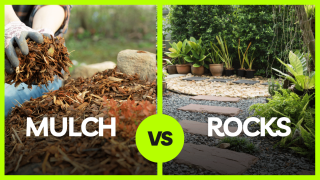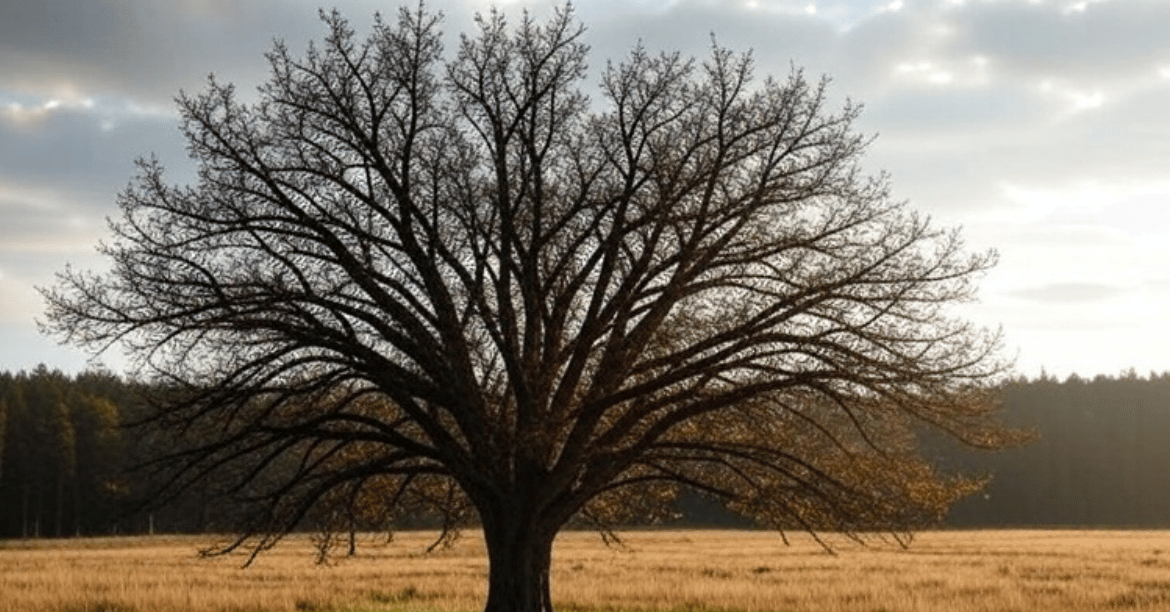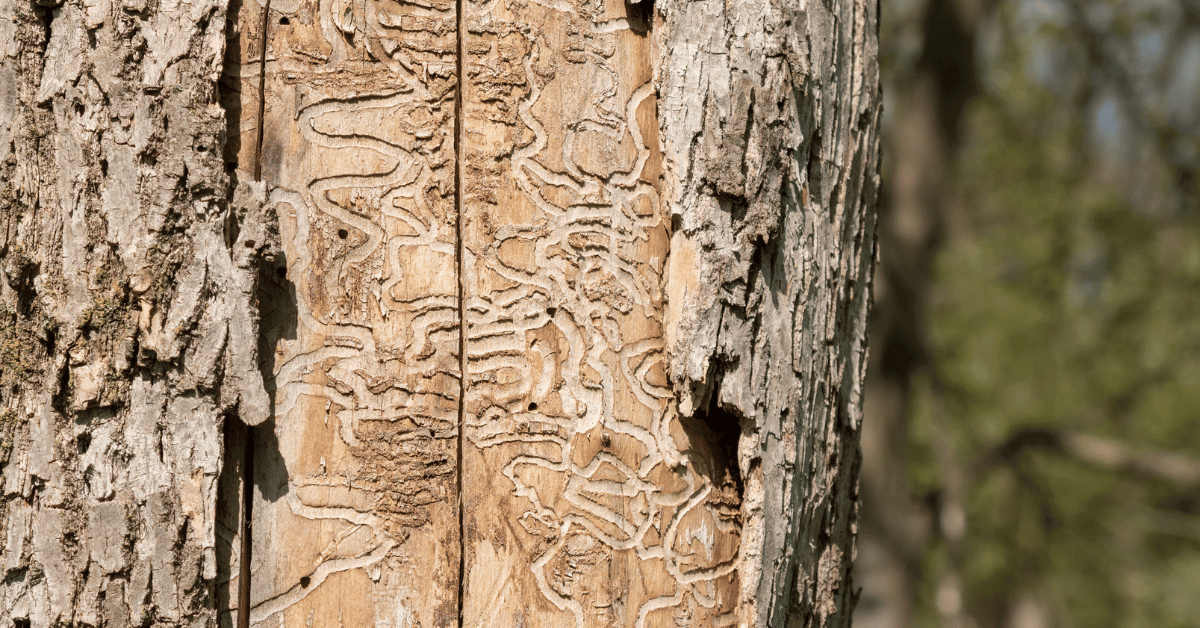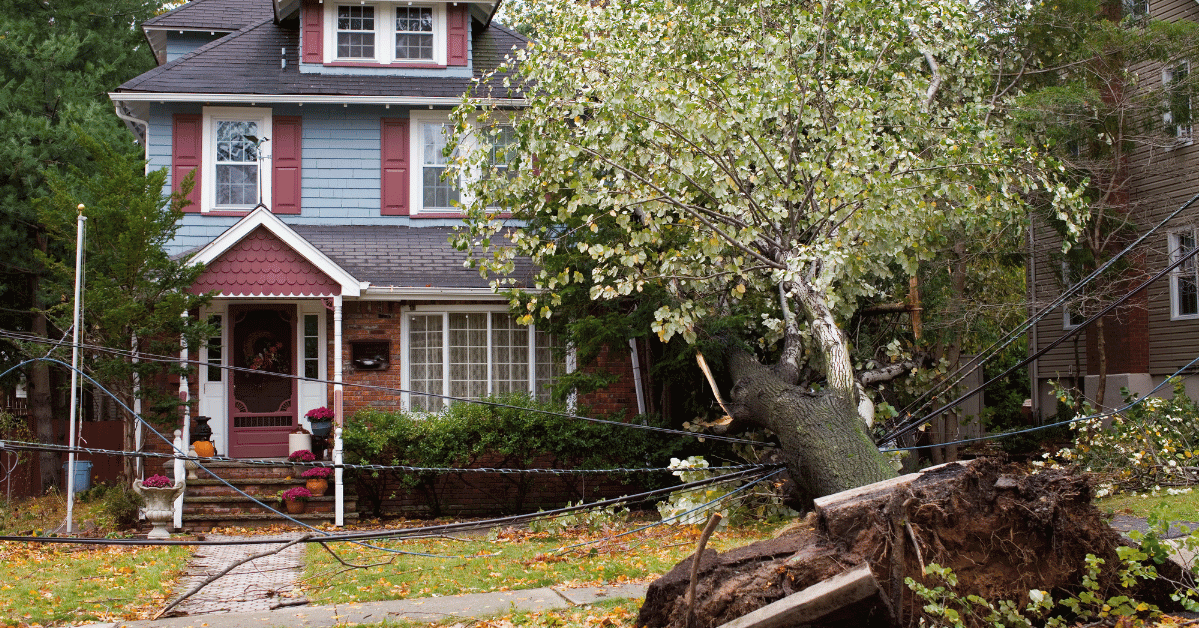Landscaping decisions often come down to the details, and one common dilemma faced by homeowners is choosing between mulch and rocks for their gardens. Both have advantages and drawbacks and understanding the nuances can help you make an informed decision that aligns with your landscaping goals. In this guide, we'll explore the benefits, disadvantages, best types, lifespan, and ideal depth for both mulch and rocks.
Benefits of Rock over Mulch
Rocks offer several advantages that make them a popular choice in landscaping:
- Durability: Rocks are known for their durability and longevity. Unlike mulch, which can decompose over time, rocks can withstand various weather conditions and retain their appearance for an extended period.
- Weed Control: Rocks are a natural barrier to weeds, preventing them from sprouting and competing with your plants for nutrients. This can significantly reduce the time and effort spent on weed management.
- Low Maintenance: Once rocks are in place, they require minimal maintenance. Unlike mulch, which may need replenishing annually, rocks can last several years without needing replacement.
- Water Conservation: Rocks help retain soil moisture by reducing evaporation. This can be particularly beneficial in arid regions or during periods of water restrictions, contributing to a more sustainable landscape.
Disadvantages of Rock vs. Mulch
While rocks have their merits, they also come with their share of drawbacks:
- Heat Retention: Rocks absorb and retain heat, which can lead to increased soil temperatures. This may be better for plants with shallow roots or those sensitive to high temperatures.
- Installation Challenges: Rocks can be heavier and more challenging to install compared to mulch. The labor involved in placing and arranging rocks can be a factor to consider, especially for larger landscaping projects.
- Limited Nutrient Contribution: Unlike organic mulch, rocks don't break down and contribute nutrients to the soil. You may need to supplement your plants with additional fertilizers to ensure optimal growth.
Putting Mulch Over Rocks
Using rocks and mulch in your landscaping design is a common compromise. This approach combines the benefits of both materials:
- Aesthetics: Rocks provide a sturdy foundation and structure, while mulch adds a softer, organic touch. This combination can create a visually appealing contrast in your garden.
- Improved Soil Health: By placing mulch over rocks, you can enjoy the benefits of moisture retention, weed control, and nutrient contribution. This is particularly useful in areas where you want to mitigate the heat-retaining properties of rocks.
How Long Does Rock vs. Mulch Last?
The lifespan of rocks and mulch depends on various factors, including the type of material and environmental conditions. Generally:
- Rocks: With proper maintenance, rocks can last for many years, making them a cost-effective long-term solution.
- Mulch: Organic mulch, such as wood chips, decomposes over time and may need replacement every 1-2 years. Inorganic mulch, such as rubber or stone mulch, can last longer but may not provide the same soil-enhancing benefits as organic options.
How Deep Should Rocks or Mulch Be?
The ideal depth for rocks and mulch depends on the purpose and the type of material:
- Rocks: A 2-4 inches layer is generally sufficient for weed control and aesthetic purposes. Thicker layers may lead to heat retention and hinder water penetration.
- Mulch: Apply a layer of 2-4 inches for optimal weed suppression, moisture retention, and nutrient contribution. Be cautious not to pile mulch against the base of plants, as this can lead to moisture-related issues.
Best Type of Rocks or Mulch?
Rock Varieties
When choosing rocks, consider size, color, and texture. Standard options include pea gravel, river rocks, and lava rocks. Each type has unique aesthetic and functional qualities, so select the one that complements your overall landscaping vision.
Mulch Options
Mulch comes in various forms, including wood chips, bark mulch, and straw. Wood chips are famous for their longevity and ability to retain moisture. Bark mulch, derived from tree bark, adds an attractive natural look to gardens. Straw mulch is an excellent option for vegetable gardens, offering weed suppression and moisture retention.
Conclusion
Choosing mulch and rocks depends on your specific landscaping goals and preferences. Whether you prioritize low maintenance, heat retention, or soil enrichment, understanding the pros and cons of each option can guide you toward creating a vibrant and healthy outdoor space.
If you have further questions or need professional advice on tree care and landscaping, please contact Strobert Tree Services. As leaders in tree care in Delaware, Pennsylvania, Maryland, and New Jersey, we are dedicated to providing expert guidance and services to enhance the beauty and vitality of your outdoor spaces.











